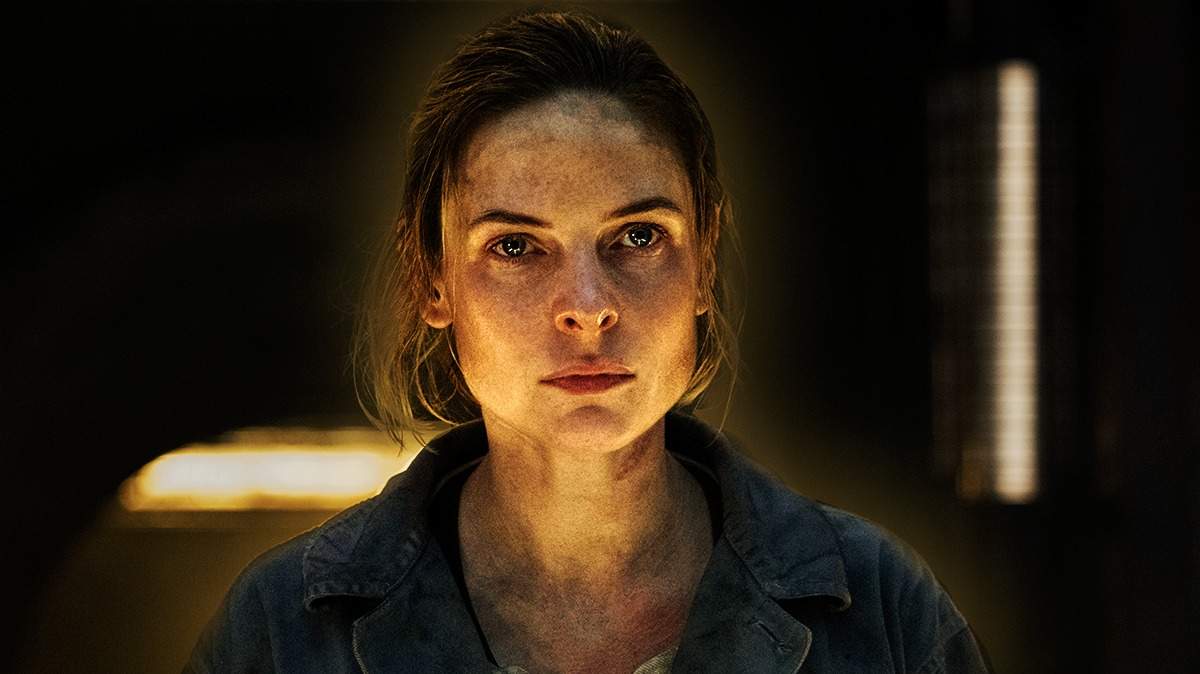
Silo S1E10: Next
The first big shock in A Game of Thrones (or, if you prefer, the first season of HBO’s adaptation) was setting up Ned Stark to be the protagonist for the series, and then killing him off. It’s a great trick. Besides upending the audience’s expectations, it sends a clear signal that no one is safe.
Wool, the first book in Hugh Howey’s Silo series, pulls that trick off twice. The book opens with Sheriff Holston as the lone point-of-view character, and then he goes outside of the silo, and he dies. Then Mayor Jahns takes over as our POV, investigating Holston’s death. And then she’s murdered. So when Juliette takes over both as sheriff and main character, the reader’s left wondering how long she’s going to last. Is she the hero who sees us through to the end? Or just another link in the chain?
That kind of uncertainty is nearly unheard of on television. Even on a show with a very high body count, the audience knows deep down that this isn’t the episode where Jack Bauer dies and the terrorists win. No matter how much peril the hero is in, no matter how hopeless things seem, we keep watching knowing the day will eventually be saved and the hero will come out on top.
Except we don’t know that about Juliette Nichols. And that makes the constant tension — which started high in episode one and has been ratcheting up every week — work as well as it does. We can safely assume that the oppressive, secretive cabal running the silo from the shadows doesn’t win in the end and keep everyone under their thumb. But we genuinely don’t know whether Juliette will live to see that day, or whether we’ll get another character to keep the flame and finish what she started.
That’s what made Juliette getting caught last week and sentenced to go outside so devastating. She escapes and goes into hiding, but for once, the audience doesn’t just wonder how she’s going to get out of this one. We wondered if she was going to get out of this one.
“Next” doesn’t give us a break from wondering. She starts off in a hiding place that she knows will be uncovered momentarily, with the entire Silo looking for her, a death sentence on her head, and in possession of the most illegal object in the world — the hard drive containing some, maybe all, of the silo’s deepest secrets.
She gets to reveal one of those secrets — an image of the outside, lush and green, in contrast to the bleak view they see out the silo’s viewscreen. But it’s not clear how many people got to see the brief glimpse she broadcast, or whether they knew what to make of it. Especially since we know Juliette herself doesn’t know the truth behind the image. She believes the powers that be are lying about the devastation outside to keep everyone in. But as Holston learned to his peril, the lush green landscape is the lie, a simulation shown to those who go outside, for reasons as yet unknown. Once Holston took his helmet off, he saw that bleak landscape in person, just long enough for it to kill him.
And Juliette likely showed that false, lush image just long enough for it to kill her. Ultimately, while there are places to hide in the Silo, there’s no escaping it. It’s only a matter of time before Juliette runs out of heroic escapes, and is given a stark choice — accept her death sentence, or watch Mayor Holland punish everyone she cares about. For once, we’re not wondering how Juliette will get away. We’re wondering if there’s any chance she’ll live to see next season. Mayor Holland is merciless — we get a reminder of that when he sentences Lukas to ten years of hard labor for not ratting out Juliette earlier, even though he refused to help her and did help Holland. Any pretense of justice or fairness in the silo is long past. Holland’s power is absolute, and he wants to make sure that’s clear.
And that’s where authoritarian systems get their power. Anyone can fight back if they choose. But they’ll lose in the end. And that knowledge keeps most people from ever stepping out of line. As stubborn and determined as Juliette is, she can’t find a wide enough crack in that absolute power to see daylight through.
Ultimately, the power of the episode isn’t how it ends for Juliette, it’s that crushing inevitability of life in the silo. There’s no escape, from the structure itself, or the power structure that watches and controls everyone. That’s true, to some extent, of any authoritarian regime. Except there are no defectors from the silo, no refugees, no escape.
We won’t spoil the final secret that gets revealed to end the first season. We’ll just say that this has been a devastatingly effective season one, and that Silo is second only to Severance in making the argument that Apple TV+ is the best streaming service going right now. (And between those two shows, Station Eleven, and Star Trek: Strange New Worlds, it’s a great time to be a fan of sci-fi shows that start with an S.) We’ll see what mysteries the silo offers up in season two.
Stray thoughts:
• At one point, Juliette escapes through the garbage chute. Princess Leia would be proud.
• Things get more complicated from here on out, not for the residents of the silo, but for the producers of Silo. We’ve reached the end of Wool, the first book in the series. Shift, the second, is a prequel that covers both the origins of the silo and the long-ago rebellion that’s often used to justify the silo’s culture of secrecy and control. But it has an entirely new cast of characters, and our characters from Wool don’t return until the third book, Dust. We’re guessing that future seasons will weave the past and future together via flashback, rather than abandon our cast for a season, but we’ll just have to wait and see. And until the WGA/SAG strike is resolved, there’s no telling how long we’ll have to wait.
